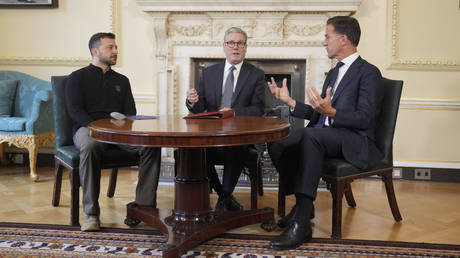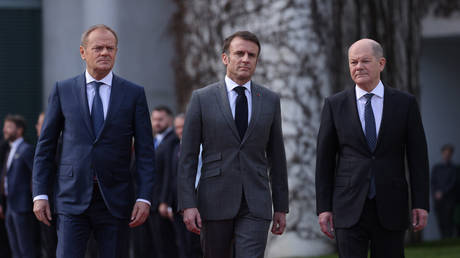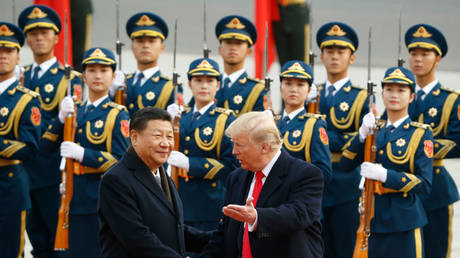Remarks
Minister Osman Saleh
8th Indian Ocean Conference
15th – 17th February 2025
Muscat, Oman
Excellencies,
Ladies and Gentlemen,
At the outset, I would like to extend my sincere gratitude to the Government of the Sultanate of Oman for their gracious hospitality and for hosting this vital forum.
Excellencies,
The Indian Ocean, sprawling across nearly 70.56 million square kilometers, stands as one of the world’s most crucial maritime realms playing an indispensable role in global trade, geopolitics, and environmental sustainability. The 8th Indian Ocean Conference (IOC) underscores the ocean’s significance and outlines the strategic imperatives that must be addressed.
The Indian Ocean is the lifeblood of global commerce. It connects three continents—Africa, Asia, and Australia—serving as a conduit for approximately 40% of the world’s offshore petroleum production, 50% of the world’s container traffic, and over 70% of the world’s seaborne oil trade. Strategic chokepoints like the Strait of Hormuz, the Malacca Strait, and the Bab el-Mandeb are pivotal for energy security, influencing global economic stability.
This Conference, themed “Voyage to New Horizons of Maritime Partnership,”, thus, provides a pivotal venue for fostering dialogue, enhancing cooperation, and promoting strategic collaboration among nations within the Indian Ocean Region (IOR). With maritime connectivity being fundamental to global trade, economic growth, and security, Eritrea believes this conference will deepen regional alliances and tackle current maritime challenges.
Ladies and Gentlemen,
Eritrea, with its strategic location along the Red Sea, holds a significant position in the maritime landscape, offering access to key global shipping routes from the Mediterranean to the Indian Ocean via the Suez Canal and the Bab el-Mandeb Strait.
As global dynamics shift in the Indo-Pacific and the Middle East, Eritrea is dedicated to enhancing maritime security and economic development through strengthened mutually beneficial partnerships with neighboring African and Gulf countries.
However, recent developments in the region seek to destabilize the Horn of Africa not only by external actors but also regional players. The continuous meddling in the domestic affairs of Somalia, through deliberate attempts to undermine its territorial integrity, must be met with firm condemnation and legal action at all times. Somalia’s sovereignty and unity must be respected, and attempts aimed at fragmenting or destabilizing the country can only be fraught with precipitating broader regional tension and instability.
Somalia boasts a coastline of approximately 3,333 kilometers, the longest on mainland Africa. This coastline possesses immense economic potential through its blue economy, rich fisheries, and strategic maritime position along key global trade routes. If harnessed effectively, these resources could transform the nation’s economic landscape, providing livelihoods, boosting trade, and contributing to regional prosperity.
However, Somalia and its people have been unable to fully capitalize on these vast endowments due to persistent external interference, political instability, and exploitative practices by foreign actors. The illegal exploitation of its marine resources and geopolitical maneuvering has significantly hampered Somalia’s ability to benefit from its own natural wealth. Somalia must be left alone to govern and manage its own rich resources in a manner that best serves its national interests and the well-being of its people, free from external interference.
It is imperative to raise these concerns given the security and stability of the Horn of Africa cannot be viewed in isolation. Its stability is deeply interconnected with the broader dynamics of the Indian Ocean. This region serves as a critical maritime crossroads, connecting the Red Sea to the vast expanse of the Indian Ocean via the Bab el-Mandeb Strait and the Gulf of Aden. An estimated 10% of global trade passes through the Bab el-Mandeb Strait, while the Suez Canal handles around 12%. Additionally, an estimated one-quarter of the world’s seaborne oil trade flows through the Strait of Hormuz. Any instability in the Horn of Africa and the wider region directly affects the safety of vital global shipping lanes, with significant repercussions for international trade, energy, economic development, and regional security.
Therefore, it is in the collective interest of all nations to uphold the principles of sovereignty and territorial integrity as enshrined in the UN Charter. The territorial integrity of all nations bordering these vital waterways is inviolable and non-negotiable. The Indian Ocean Conference must therefore take a firm stance against any interference that seeks to undermine Somalia’s unity or exploit the political situation of the Horn of Africa.
In view of the above, the Indian Ocean Conference must amplify the voice of the Global South in the governance of the world’s maritime domain. The dominance of a select few in maritime policy-making must be countered with a renewed push for greater participation, ensuring that developing nations play a decisive role in shaping global maritime governance.
Excellencies,
Equitable access to marine resources, fair trade practices, and technology transfer must also be prioritized to empower economies across the Indian Ocean Region. This conference must champion capacity-building initiatives in maritime technology, governance, and law enforcement, ensuring that no nation is left behind in the quest for a fair and balanced maritime order.
Moreover, the Indian Ocean faces mounting environmental threats—rising sea levels, coastal degradation, and extreme weather events—endangering both livelihoods and economies. The 8th Indian Ocean Conference must drive an ambitious agenda for sustainable maritime policies that reconcile economic imperatives with environmental stewardship. The resilience of coastal communities must be reinforced through robust climate adaptation strategies, enhanced marine conservation efforts, and the promotion of green shipping technologies. Our commitments must align with global climate frameworks to safeguard the ecological integrity of the Indian Ocean for future generations.
Historically, the Indian Ocean has been a melting pot of civilizations, facilitating the exchange of ideas, traditions, and commerce. Strengthening educational exchanges, research collaborations, and tourism initiatives will further reinforce the bonds between Indian Ocean nations and promote a sense of shared destiny.
Excellencies,
In closing, the changing global political landscape, marked by the increasing naval presence of major powers, underscores the need for a nuanced approach to tackle emerging challenges. We must ensure that regional security mechanisms evolve to counterbalance these geopolitical shifts, advocating for cooperative security frameworks that respect national sovereignty while reinforcing collective stability and development.
The 8th Indian Ocean Conference, therefore, signifies a recommitment to cooperation, unity, progress, and the reaffirmation of respect for the sovereignty and territorial integrity of all nations. As we navigate toward new horizons, we must emphasize collaboration over competition and resilience over vulnerability. By building a robust maritime partnership, the Indian Ocean Region can realize its full potential, ensuring stability and growth for future generations.
And for these partnerships to be truly meaningful, they must be built on solid foundations of trust, mutual respect, and transparency. Any opportunistic alliances, lacking sincerity and genuine commitment, will not serve the best interests of the nations in this region.
As such, as we proceed with this conference, our collective goals should translate into actionable policies and initiatives that will shape the future of maritime cooperation in the Indian Ocean. Through dialogue, innovation, and solidarity, this journey toward new horizons will map out a path to a more secure, interconnected, and prosperous Indian Ocean Region.
I thank you.





+ There are no comments
Add yours